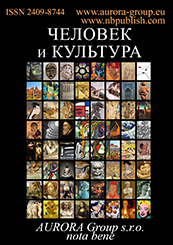Gender studies
Reference:
Liu, T. (2025). Appealing and Responding: An Interpretation of the Confucian Canon "Li Ji" from the Perspective of Modern Feminist Critique. Man and Culture, 3, 1–13. https://doi.org/10.25136/2409-8744.2025.3.74307
Abstract:
The subject of this research is a critical analysis of the Confucian canon "Li Ji" from a feminist perspective, grounded in the philosophy of Emmanuel Levinas. The study focuses on the ethical status of women within the Confucian ritual-moral system and reveals how female subjectivity is structurally excluded from the realm of ethical expression. Attention is given to both the textual mechanisms that reinforce gender otherness and the forms of female response, which are simultaneously imbued with emotionality and normative discipline. Using Levinas's concept of the Other, the work aims to show that women in "Li Ji" function as ethical carriers but not as recognized subjects capable of calling to account. Thus, the research contributes to understanding the possibility of the female voice as the beginning of ethical relations within the patriarchal canon. The study employs a comparative philosophical method, combining a critical reading of the Confucian text with feminist analysis and the conceptual apparatus of Levinas's ethics to reveal gender asymmetries in the structure of moral recognition. The scientific novelty of the research lies in the interdisciplinary interpretation of the Confucian canon "Li Ji" at the intersection of feminist critique and the ethical philosophy of Emmanuel Levinas. The main methods used include hermeneutic analysis, intertextual approaches, and critical-discursive readings of key concepts such as "ritual," "obedience," and "difference." The study shows that despite women's active participation in ritual-ethical practice, their status as a Person remains invisible and unrecognized within the moral structure. The work demonstrates how the normative logic of the text generates an effect of ethical silence, structurally placing women in the position of the responding subject while excluding them from the possibility of being initiators of moral calls. This gender bias in the Confucian model necessitates philosophical deconstruction. In conclusion, the necessity to rethink the very foundation of ethical relations and affirm the female voice as an equal and autonomous source of ethical subjectivity and moral expression is emphasized.
Keywords:
Ethics and Gender, Structural inequality, Gender norms, Confucian family ethics, Gendered othering, Levinas, Face, Affective labor, Confucian ritual, Female subjectivity
 This work is licensed under a Creative Commons Attribution-NonCommercial 4.0 International License.
This work is licensed under a Creative Commons Attribution-NonCommercial 4.0 International License.









 © 1998 – 2025 Nota Bene. Publishing Technologies. NB-Media Ltd.
© 1998 – 2025 Nota Bene. Publishing Technologies. NB-Media Ltd.




